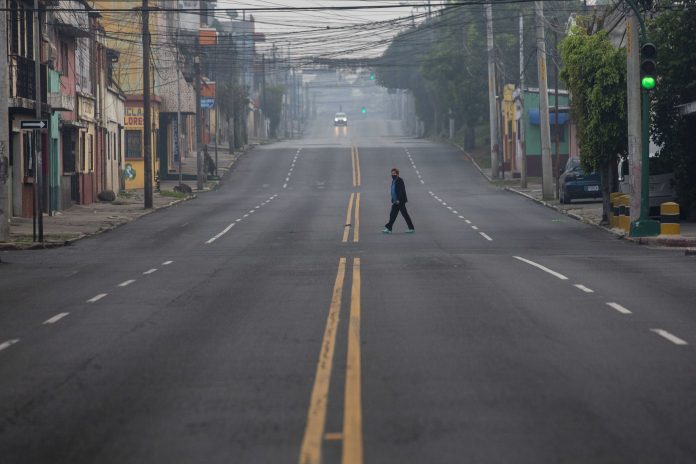
Guatemala’s president questioned his country’s relationship with the United States, revealing frustration over the U.S. continuing to send deportees infected with COVID-19 to a country struggling to manage the crisis.
“This of allies with the United States isn’t true,” President Alejandro Giammattei said Thursday. “Guatemala is an ally of the United States, but the United States is not Guatemala’s ally. They don’t treat us like an ally.”
Giammattei is the first of the region’s leaders to speak out against the U.S. policy that has sent thousands of deportees back to their countries since the pandemic began.
Guatemala has confirmed 119 deportees arrived with COVID-19 from the United States. The country has suspended the deportation flights on several occasions after infected passengers were detected, but resumed them after assurances from U.S. authorities.
The last flight with deportees who tested positive in Guatemala arrived May 13 from Alexandria, Louisiana. Officials have said 16 of them have tested positive.
A U.S. Immigration and Customs Enforcement spokesperson confirmed this week that all 65 migrants aboard that flight had been tested prior to departure. Fifteen more Guatemalans scheduled to be on that flight tested positive and were returned to detention facilities where they were isolated from other detainees.
Guatemala has identified cases from previous flights where it appeared some had been tested and certified as negative a week before their departure.
Giammattei said the infected deportees were creating “serious problems” in his country’s already overloaded health system.
“The United States has helped other countries including with ventilators and to us nothing has come, not even chopped corn,” he said during an online appearance with the Atlantic Council’s Adrienne Arsht Latin America Center. “We don’t feel very grateful for the way we have been treated.”
Giammattei appeared to be referring to medical aid sent to Mexico, El Salvador and Honduras, all governments receiving deportees without complaint. Last month, Giammattei was notably absent from a list of phone calls U.S. President Donald Trump made to the presidents of El Salvador and Honduras offering aid and encouragement.
“We understand the United States wants to deport people, but what we don’t understand is that they send the flights all contaminated,” he said.
Guatemala has not accepted a flight yet this week.
Political analyst Renzo Rosal said the issue was raising tensions between the two countries “because the United States has shamelessly continued sending infected migrants and has not complied with what it offered.”
__



















